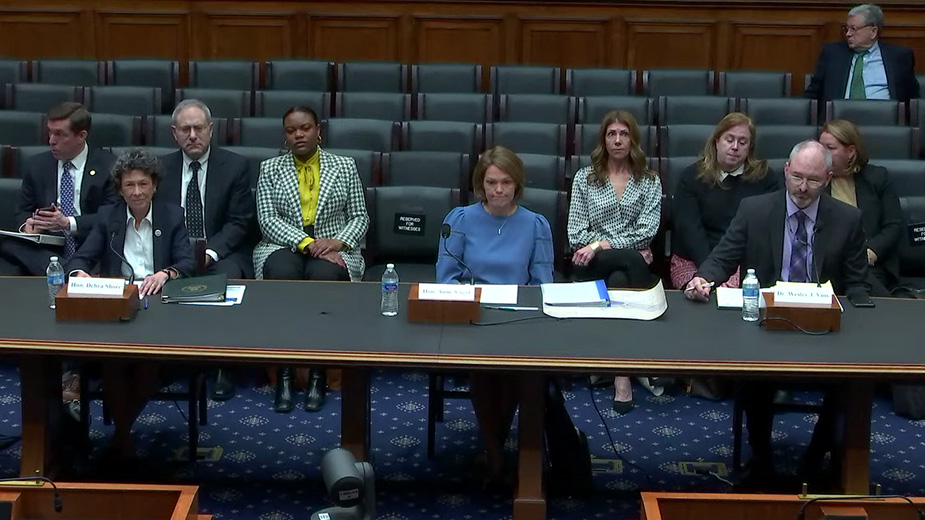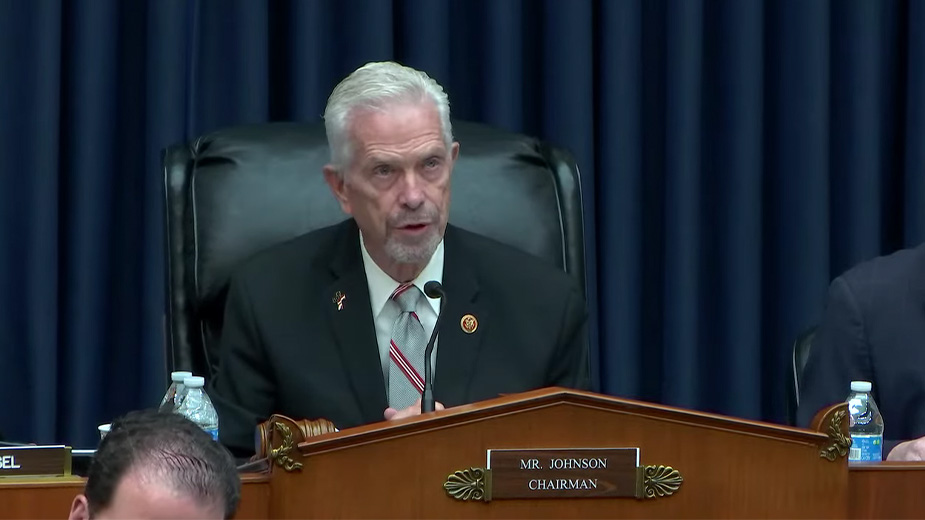US House Hearing Addresses East Palestine Concerns
EAST PALESTINE, Ohio – Concerns about the slow pace of cleanup efforts, the lingering health concerns of residents and the future for the village was the focus of a U.S. House hearing Tuesday.
In an example of how federal, state and local authorities are working together to address concerns from the Feb. 3 East Palestine train derailment, U.S. EPA Regional Administrator Debra Shore, Ohio EPA Director Ann Vogel and Columbiana County Health Department Commissioner Wes Vins testified before the U.S. House Committee on Energy and Commerce’s Environment, Manufacturing and Critical Materials Subcommittee.
“The intent of this hearing is to be precise and target, to get answers for the still-suffering residents of East Paletine,” said Rep. Bill Johnson, R-Marietta. “Our goal, simply, is to try and know what we don’t yet know.”
Johnson chairs the environmental subcommittee and is the congressman for the U.S. Sixth District, which includes East Palestine.
While Shore, Vogel and Vins testified several times that, thus far, there have not been any prolonged dangerous levels of volatile organic chemicals in the air, concernable levels of drinking water contaminants or concerns over preliminary soil sample results, the answers have not reassured some East Palestine residents and did not reassure some members of the committee.
Throughout Tuesday’s hearing, several congressional members gave examples about how train derailments and other manufacturing or industrial disasters have affected their communities.
Several subcommittee members expressed frustration that Norfolk-Southern was not invited to the hearing to answer their concerns, something Johnson said will happen at a later hearing.
Johnson also noted there will be a time to address railroad safety and asked Congress members to consider bipartisan rail safety legislation he introduced to help keep what happened in East Palestine from happening again.
Yet another train derailment, albeit without a fire, happened over the weekend when a Canadian Pacific train derailed in a rural part of North Dakota on Sunday night with 31 cars leaving the tracks, including four reportedly carrying liquid asphalt and two carrying ethylene glycol, according to the Associated Press. The second chemical, a synthetic compound used in inks, paints, hydraulic brake fluids and antifreeze, was one of the same chemicals in the East Palestine derailment.
In response to questions, Shore said the chemicals tested for after the East Palestine train derailment are those science shows would be of most concern from the list of chemicals on the train and what happens to them should they be burned, which happened both at the time of the derailment and on Feb. 6 when officials conducted a controlled vent and burn of vinyl chloride in a successful measure to keep it from exploding.

Rep. Nanette Diaz Barragan, D-California, questioned Shore additionally to explain the levels of chemicals for which the EPA is testing, noting that in California they have tougher restrictions about what is safe of 50 parts per trillion. Barragan asked that if levels are safe, why are there still people complaining of health concerns such as sore throats, headaches and burning skin.
Vins talked about the long-term plans to partner with the Ohio Department of Health and East Liverpool City Hospital for a health assessment clinic for the community with 312 residents evaluated and some being referred for treatment with a primary care physician. Vins is calling for a plan for medical reimbursement for residents and long-term well sampling.
When questioned about the long-term health effects, Vins admitted those are unknown, which Rep. Raul Ruiz, D-California, pointed out could be leading further to the anxiety residents are experiencing.
Another concern addressed by the committee was the slowness of the removal of the toxic dirt and water from the site. To date, an estimated 10,518 tons of contaminated soil has been shipped, along with 8.9 million gallons of liquid wastewater. Also, 624 indoor air screenings have been conducted. At this rate, cleanup of the site could be completed within about two months, Vogel said.
However, there have been some delays, and Johnson questioned whether there has been any evidence of the process being slowed by political pressures, price gouging or capacity excuses.
On March 17, federal EPA Administrator Michael Regan had called it potentially illegal to block the transport of hazardous waste from East Palestine to EPA-certified disposal sites. Shore asked for time to look into whether there have been such situations slowing the progress in East Palestine.
Before the federal EPA began overseeing the disposal of waste on Feb. 21, Rep. Debbie Dingell, D-Michigan, spoke about her concerns that waste materials went to an uncertified disposal site in her state.
During the hearing, it was noted the cleanup efforts are past the emergency phase and now in the remediation phase, but there will be a long-term commitment as well.
“We’ve got a long way to go before this is all finished, and I can assure you I’m in this for the long haul,” Johnson said, adding, “We are not done until the people of East Palestine say we’re done.”
Pictured at top: U.S. Rep. Bill Johnson speaks during Tuesday’s hearing. (YouTube | House Committee on Energy and Commerce)
Copyright 2024 The Business Journal, Youngstown, Ohio.



